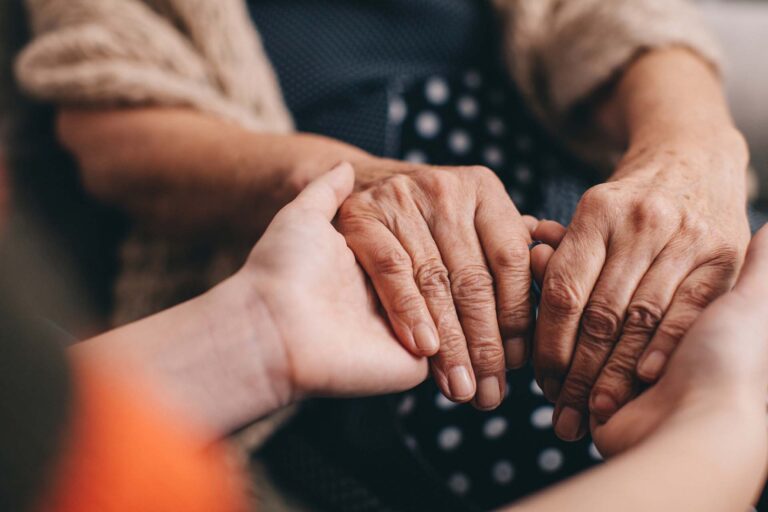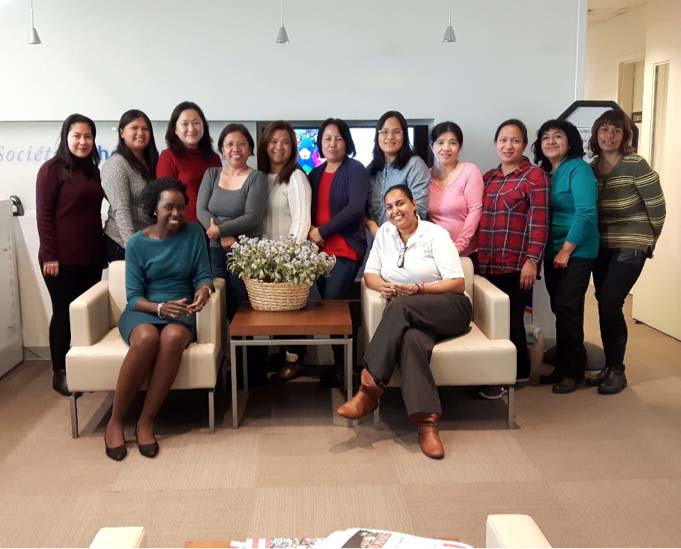Alzheimer & Dementia Care
Mosaic is always looking at new ways of keeping persons connected to the many important things in their lives. This is especially important for those with complex care needs.
What are our key Alzheimer and dementia services?
Pretty much the same as they would be for any person, but with higher level sensitivity and awareness:
- Putting the person first – meaningful interaction with self (past and present), social and emotional needs and community.
- Addressing capacities and preferences with in-depth initial and ongoing assessment – working with you to assess your needs and preferences, to allow you to be and do and to be supported where needed.
- Providing qualified services for personal supports (bathing, dressing, toileting) and medical needs (nurses)
- Providing advanced care services including comprehensive forward planning, advance care planning supports, navigation and counselling to allow the person and the family address immediate and future needs.
- Providing professional care sensitive to the needs of those receiving palliative care and/or are at the end of life.
How we care for someone is determined first and foremost by the person themselves. Secondly, we reference wider academic research, community experience and Alzheimer and dementia resources to inform our services, their delivery and their sensitivity.
The person living with dementia remains a person
People living with dementia are at risk of being seen through the lens of the disease, as individuals lacking in capacity, ability and humanity. Their need for social connection, touch and human interaction is often lost sight of.
While it is clear that people living with dementia may eventually lack the ability to recall information, research shows they do retain the ability for recognition and have an implicit memory for events. To paraphrase the UK’s Social Care Institute for Excellence, sensory and perceptual awareness can be detected in people with severe or end stage dementia and some aspects of complex awareness may be retained into the severe stages.
There is also a risk that we underestimate the capacities of those living with dementia, to perform a task for them when they may be able to do this themselves. Again, the research shows that this is the case, and this encourages the person to further withdraw from social connection and day to day tasks.
According to the Social Care Institute for Excellence, those who have lost the ability to speak can still experience emotions, loneliness, boredom, frustration. Academics Ellis and Astell note that persons in late-stage dementia will respond positively to close one to one attention (eyes, or hands) and retain the desire to communicate.
What does this all mean for homecare provision?
- Well, first and foremost it means including the person as far as possible in decision making – the person’s preferences, wishes and abilities are integral to care provision.
- Meaningful communication, whether this is conversation, touch and/or eye contact, engaging in interests and activities and social contact, where possible, should be a central component of all care services and care interaction. It is vital that we know how a person communicates.
- Nuanced, holistic, person centered communication along the full range of senses based on an understanding of the person’s needs, preferences and life history is critical to the good care of the person living with dementia along their journey to the end of their life.
- It means knowing the person and collaborating closely with the person to assess capacity and to maintain abilities and engagement in day-to-day activities.
- It means close attention and high levels of sensitivity to physical and social and emotional need.
- It requires extra sensitivity to underlying medical conditions that may impact safety. Individuals with advanced dementia find it difficult to express pain and good close working knowledge of the person is essential. Falls risks are higher for people living with dementia, especially if there are other medical conditions and medications.
- Being able to address the more complex needs of those living with dementia, especially towards the end of life requires a multi-disciplinary home care team that is working with the family and the wider health care team. Especially, you need good oversight of care and a knowledgeable team that can problem solve and offer clear and informed guidance
- The initial assessment of care will be more involved, and the learning process will be ongoing. It takes time to know the person and to build trust and a good working knowledge of preferences and abilities.
The Mosaic Home Care Promise
Mosaic Home Care treats all individuals as persons of being and meaning in our communities. Those with Alzheimer’s and dementia should still draw meaning and enjoyment from life, connection, conversation, interests and hobbies.
Our experienced client services team, client services liaison and our personal support workers and Mosaic’s Lifestyle Companions® pay attention to these important details. That is why we have implemented a person centered care approach The Meaning of Me®, an internationally recognized integrated care model.
We care for the person and the family caregivers
Mosaic also provides relief for the family caregiver, so they have time to do things that they may enjoy. We can connect the person living with dementia and the family care partners to community events and services, whether these are own online or community resource events or those provided by many of the other community programs.

How we can help you, your care partner and/or other family caregiver
- Help with bathing and other personal care
- Respite Care
- Bedside sitting in hospital
- One-on-one care in retirement residences and long-term care facilities
- Goals and needs discussed with the client or family
- Person Centered Care & The Meaning of Me® - meaningful conversations in finding out about the person, their interests and hobbies
- Connection to the community, online programs, social programs that they can attend with their personal support workers or Mosaic’s Lifestyle Companions®
- Medication reminders
- Queuing and reminders
- Grocery Shopping, light house-keeping, meal planning and preparation
- Monitoring of physical and mental health
- Accompanying to medical appointments or tests
- Mosaic trains and certify our caregivers in our The Meaning of Me® framework and our dedicated Client Services Liaison works with clients and caregivers to develop activities and interests.
Specialized Training for our Mosaic Staff to better help our Mosaic Members (clients) with complex needs
Some of our Mosaic Home Care staff attended the training for the Behavioural Support Training Program (BSTP)at the Alzheimer Society of Toronto offices. Pictured below is our Mosaic Home Care Specialized Team with Esther Atemo Public Education Coordinator of The Alzheimer Society of Toronto.
Behavioural Support Training Program
BSTP allows workers and frontline staff to develop skills for dealing with responsive behaviors when working with people living with dementia.
This program provides the skills and education for our front line staff to be better equipped in working with our clients (members) who have Alzheimer’s & Dementia.
- A better understanding of how dementia affects people physically, mentally, and socially
- The skills and confidence necessary to provide the most effective and up-to-date care
Information taken from the Alzheimer Toronto Website

After having several care companies come in with their constantly changing PSWs/caregivers who were often under a time constraint and/or lacked proper training or attitude, Mosaic stepped in with the most consistent, caring, compassionate and professional staff I have ever met.
Resources for Families
We offer a variety of stimulating arts-based classes for older adults through Zoom. Our respectful and engaging sessions include music appreciation, singalong, songwriting, poetry, creative movement, visual arts, theatre and so much more.
Phone: 1-800-616-8816
Phone: 416-322-6560
